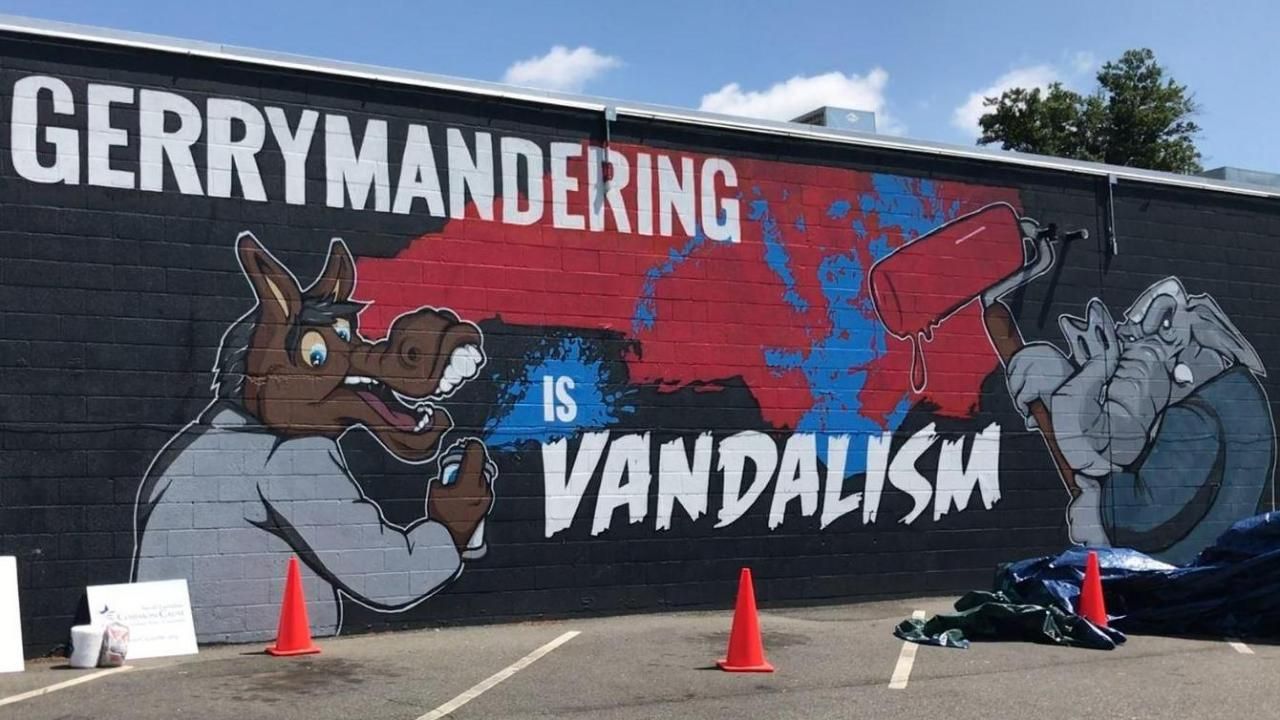Editorial: At legislative redistricting hearings, did any legislators listen?

CBC Editorial: Thursday, Sept. 28, 2023; editorial #8878
The following is the opinion of Capitol Broadcasting Company
Public hearings, like the three suddenly called North Carolina General Assembly hearings concerning the process of redrawing congressional and legislative election districts, are supposed to be an opportunity.
Public hearings are conducted to give legislators the chance to hear – and more significantly listen – to the thoughts, concerns and wishes of the people they represent and those who gave them the opportunity to serve the state. There’s plenty more legislators need to hear from those they represent if they are going to enact new election districts.
The unfortunate reality -- unless there’s unprecedented change -- is the current hearings are only for show. Legislative leaders have demonstrated little concern for what these citizens ask or what they seek. The hearings are a mere function, so when the challenge to their gerrymandering gets before the courts, legislative leaders will be able to show they went through the motions of seeming as if they’ve offered public participation.
With hardly a week’s notice, with just three hearings, scores of citizens still took time away from work and families to travel hundreds of miles to beseech legislators to draw districts that give voice to voters not partisan security to entrench partisan majorities. They want further opportunities for input on the election districts legislators will propose.
“Holding these hearings with such little notice so that voters have no time to prepare, in only three locations in the state so that citizens must travel great distances to have their voices heard and at a time of day when most working people are unable to attend, is an affront to every citizen of this state,” Ben Henderson of Watauga County, said at the hearing in Hickory.
Priya Palmer of Catawba County begged legislators: “Citizen participation and access at all levels and steps of the process must be a priority, so that the maps produced result in fair, effective and accountable representation for all in North Carolina.”
Sue Engelhardt, who lives in Hertford and is president of the League of Women Voters of Northeastern North Carolina offered up a very basic criteria for the redistricting process:
“We deserved a democratic redistricting process that meets our communities’ needs, not the politicians’ needs. District maps must be drawn to create equal representation and reflect the people’s will,” Engelhardt said.
“How the maps are drawn, must be transparent and provides the citizen’s input. The criteria for fair maps include keeping districts compact and contiguous, keeping communities of interest whole and complying with the Voting Rights Act.”
Speaker after speaker, in Elizabeth City, Hickory and Raleigh, stressed one particular point. Politicians should NOT use their power to gerrymander and give themselves or their political parties unfair advantages aimed to keep themselves in power. They SHOULD NOT choose their voters but -- as the U.S. Constitution and North Carolina Constitution intend -- have the voters pick those who represent them.
Several speakers at the hearings stressed the adoption of nonpartisan criteria for drawing election districts and to have it done by a nonpartisan commission. They particularly pointed to work done at Duke University and how it could be applied to making North Carolina’s legislative and congressional election districts more representative of the electorate.
The reality is, despite the facade of rush portrayed by legislative leaders, there’s plenty of time to develop election districts and offer them up for public comment and debate. There’s no requirement to draw new election district lines until after the 2030 census.
Despite the contention of Senate Redistricting Committee Co-Chair Warren Daniel, R-Burke County, that “we need to have all the maps passed by the end of October” there’s no such deadline. And, given the lackadaisical approach these legislative leaders had to enact a state budget, they act as if deadlines are made to be broken.
While Ralph Hise, R-Mitchell County, indicated at Wednesday’s hearing that it would be the last concerning the latest redistricting efforts, that should not be the case.
North Carolinians deserve more information and more say before any new election districts are enacted and there’s plenty of time to do it.
Every bit of information gathered, the background and advice from every expert, the various plans developed and proposed, should all be public and available.
Further, there should be MORE opportunities for public involvement and comment. As legislative committees engage in open and transparent proceedings to develop maps, public comment should be encouraged and ALL information should be easily available to the public.
Further, after those committees offer up final versions and BEFORE there is a vote, there should be hearings held in each of the state’s 14 congressional districts to give voters the opportunity to comment on specific plans. These hearings should be held at times and places with a priority on the convenience of voters – not legislators.
Legislators need to show the legislature truly is the branch of state government “closest to the people and most accountable through the most frequent elections,” as contends Paul Newby, chief justice of the state Supreme Court.
Legislators must demonstrate they truly care and take to heart the views and concerns of the people they represent – not merely tolerate them as a necessary nuisance.
Give the people their voice. Make sure there is meaning to every ballot cast by the state’s voters.
Capitol Broadcasting Company's Opinion Section seeks a broad range of comments and letters to the editor. Our Comments beside each opinion column offer the opportunity to engage in a dialogue about this article.
In addition, we invite you to write a letter to the editor about this or any other opinion articles. Here are some tips on submissions >> SUBMIT A LETTER TO THE EDITOR









